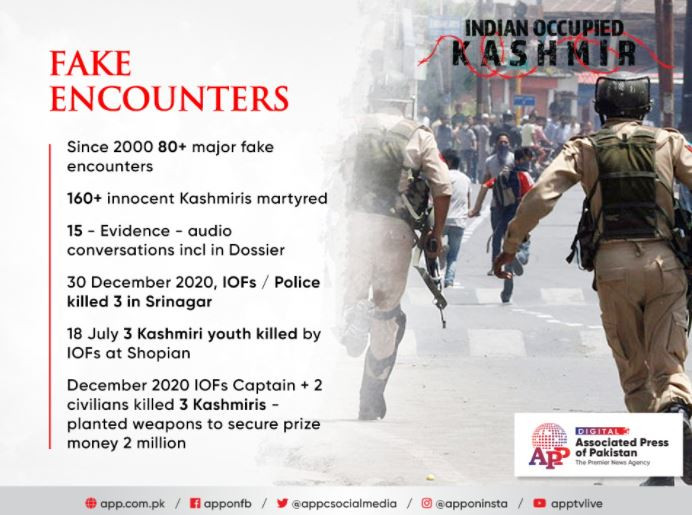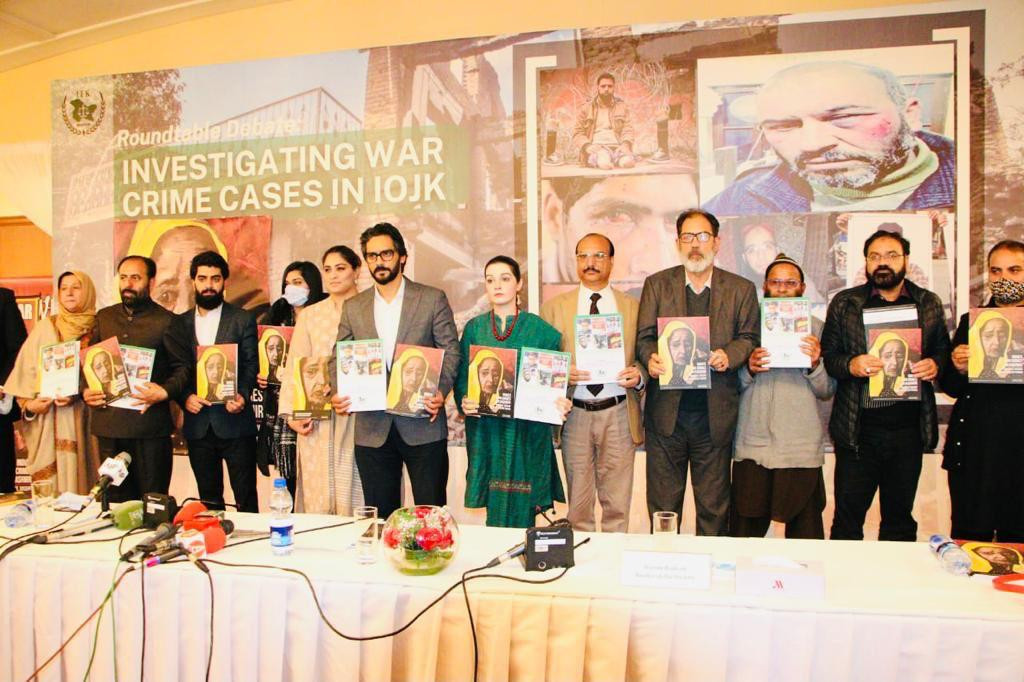ISLAMABAD: Lambasting Indian authorities for a staged encounter of a teenager in the Indian Illegally Occupied Jammu and Kashmir’s (IIOJK) Poonch sector, the Legal Forum for Kashmir (LFK) has launched a comprehensive dossier on Zia Mustafa’s extra-judicial execution.
To highlight the ongoing situation in IIOJK, the LFK on Friday organised a roundtable debate titled “Investigation War Crime Cases in IIOJK” at a local hotel.
According to the dossier, 15-year-old Zia Mustafa from AJK’s Rawalakot inadvertently crossed the Line of Control on January 13 in 2003 and was arrested by Indian occupying forces. The family members of Zia lodged a missing report at a local police station.

The army and IIOJK police led by the then Director General of Police A K Suri gave a joint press conference to the Indian media on April 11, 2003, projecting and presenting Zia as a foreign militant, allegedly involved in so-called terror incidents.
However, the dossier reports that Zia was a minor when he crossed the border unknowingly and later, was falsely implicated as a militant by the Indian forces and agencies.
The report further states that the trial court in Shopian, Kashmir framed charges against Zia under Sections 302, 120b, 450, 395, of IPC; 7/27 PACT; 2/3 IMCO. However, the state out of prosecution witnesses failed to produce a single piece of evidence against Zia.
Accordingly, the court closed the prosecution evidence. The State of IIOJK filed a criminal appeal before the IIOJK high court, which was termed meritless and dismissed by the court.
The state again approached the Supreme Court of India and filed a criminal appeal 39899/2018.
Zia’s lawyer Mubashir Gattoo while talking to local media said Zia, who had been under trial for 17 years was facing a case before the session’s court but there was no evidence for his conviction.
The dossier highlights the extra-judicial execution of an undertrial prisoner who was in judicial custody when the joint-counter insurgent group including the Indian army without following the mandate of law took Zia outside the jail and killed him in a staged encounter.
The dossier also reveals the important documents showing Zia as a minor boy at the date of his arrest. Moreover, the prisoners’ list exchanged by the foreign offices listed Zia as an undertrial prisoner. It highlights the 111 fake encounters and the alleged perpetrators involved in the war crimes committed by the Indian army.

The LFK held a roundtable debate inviting law experts and key stakeholders on the ‘universal jurisdiction case submitted before the metropolitan war crime unit in the United Kingdom.
The experts hailed the efforts of the Stoke White Investigation Unit for filing a suit against Indian Prime Minister Narendra Modi, Home Minister Amit Shah and other six Indian officials responsible for torture and extra-judicial killing of the duo.
Dr Muhammad Mushtaq, former Director-General of Sharia Academy eulogised the remarkable work of Stoke White and also pitched for the constitution of a war crime tribunal for the crime against humanity in IIOJK.
Hakan Camuz said he hoped that the request to British police seeking the arrest of Indian officials would be followed by other legal actions also focusing on Kashmir.
He added that Stoke White was sure that it was not going to be the last one as there would probably be many more applications.
Towards the end of the meeting, Executive Director Nasir Qadri said this is the beginning of lawfare against the occupier (India) and his organisation would further pursue the war crime cases to different available forums so that the perpetrators involved were apprehended for their crimes.
He further added that Kashmir had faced the worst human carnage for the last 74 years and the international community could no longer be silent spectators to India’s atrocity crimes and impunity.
























